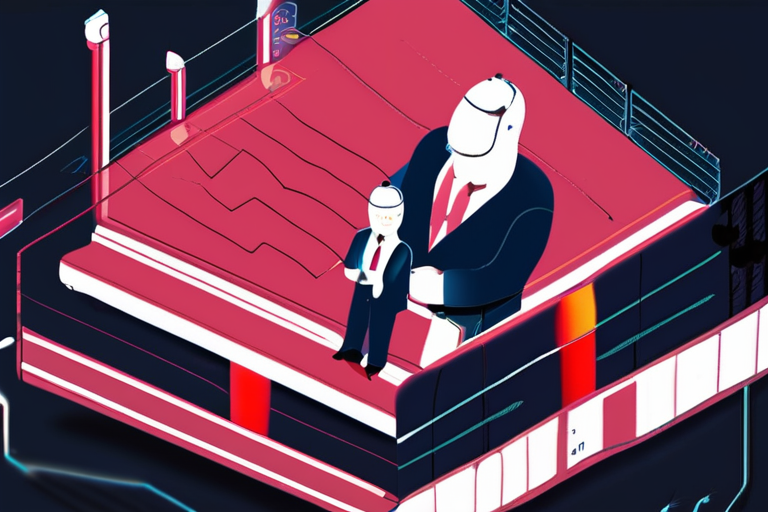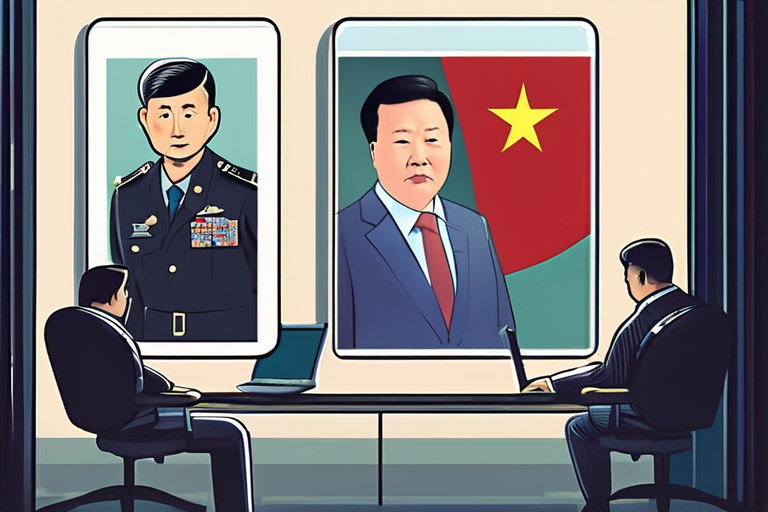The Great Purge: How the FCC's Crackdown on Chinese Electronics Exposes a National Security Nightmare
In the digital age, our homes are filled with smart devices that promise convenience and connectivity. But behind the sleek designs and user-friendly interfaces lies a more sinister reality. The US Federal Communications Commission (FCC) has been quietly waging a war against millions of prohibited Chinese-made electronics, citing national security risks that threaten to compromise American lives.
At the epicenter of this controversy is Huawei, one of China's most powerful tech giants. With its sleek smartphones and high-speed routers, Huawei has become a household name in the US. But beneath the surface lies a complex web of espionage and surveillance that has left experts sounding alarm bells.
According to FCC Chair Brendan Carr, millions of listings for prohibited Chinese-made electronics have been removed from major online retailers, including products from Huawei, ZTE, Hikvision, and Dahua. These items were either on a US list of barred equipment or lacked authorization from the agency. The affected products range from home security cameras to smart watches, all designed to collect sensitive data that could be used against American interests.
Carr's words are laced with urgency: "We're talking about allowing China to surveil Americans, disrupt communications networks, and otherwise threaten U.S. national security." As the FCC issues a new national security notice reminding companies of prohibited items, including video surveillance equipment, it becomes clear that this is not just a matter of trade policy or corporate accountability – but a battle for the very fabric of American society.
The China Factor: A Web of Espionage and Surveillance
At the heart of this controversy lies China's notorious reputation for espionage and surveillance. Beijing has been accused of using its tech giants to collect sensitive data on foreign governments, businesses, and individuals. Huawei, in particular, has faced intense scrutiny over allegations that it has embedded backdoors into its products, allowing Chinese authorities to access sensitive information.
But what exactly does this mean for American consumers? As we increasingly rely on smart devices to manage our daily lives, we become unwitting participants in a global game of cat and mouse. Our personal data is being collected, stored, and potentially exploited by foreign powers with ulterior motives.
The Human Cost: A Story of Betrayal and Deception
Meet Sarah Johnson, a 35-year-old mother who recently purchased a smart home security system from an online retailer. Unbeknownst to her, the device was manufactured by Hikvision, one of the Chinese companies on the FCC's prohibited list.
"I had no idea that my security camera was collecting sensitive data on our family," Sarah says, her voice trembling with concern. "I thought I was just getting a convenient way to monitor our home – not contributing to some larger national security threat."
Sarah's story is a stark reminder of the human cost behind this controversy. As we rush to adopt the latest smart technologies, we often overlook the fine print and potential risks involved.
The Future of National Security: A New Era of Vigilance
As the FCC continues its crackdown on prohibited Chinese electronics, it raises important questions about the future of national security in the digital age. Can we trust our tech giants to prioritize American interests over profits? Or will we continue to compromise our safety and security for the sake of convenience and connectivity?
The answer lies not just with policymakers or corporate leaders – but with us, as consumers. As we navigate this complex web of espionage and surveillance, it's time to ask ourselves: what are we willing to sacrifice for the sake of progress?
In a world where technology is increasingly intertwined with our daily lives, the stakes have never been higher. The FCC's crackdown on prohibited Chinese electronics serves as a stark reminder that national security is not just a matter of policy – but a fundamental human right.
As we move forward in this new era of vigilance, one thing is clear: the future of American security depends on our ability to stay ahead of the curve and confront the dark side of technological progress. The question remains: are we up for the challenge?
*Based on reporting by Tech.*



 Hoppi
Hoppi

 Hoppi
Hoppi

 Hoppi
Hoppi

 Hoppi
Hoppi

 Hoppi
Hoppi

 Hoppi
Hoppi











